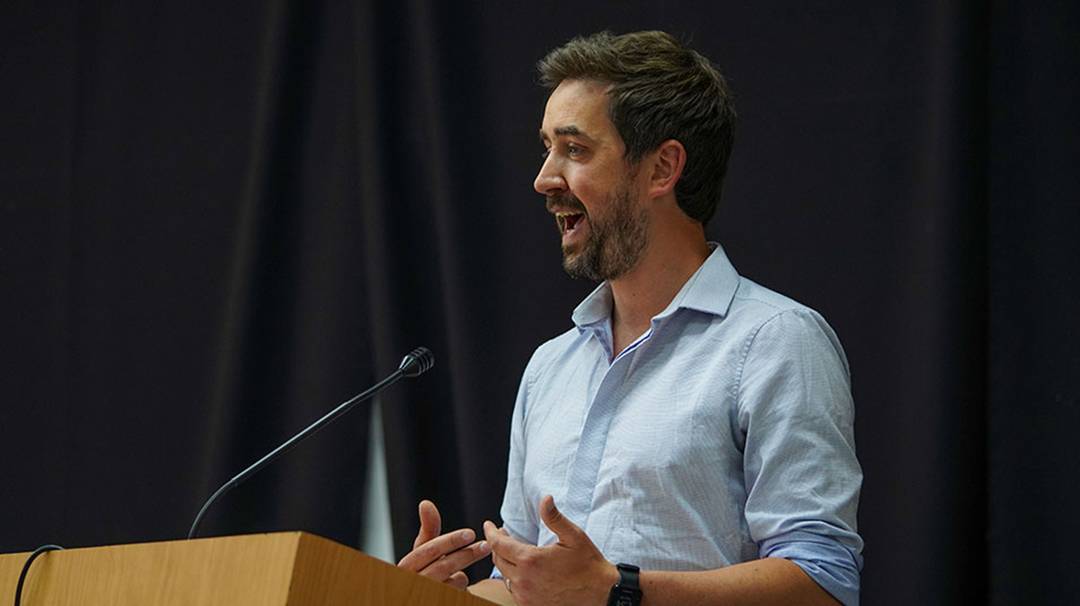The ongoing genocide in Gaza has starkly exposed Western governments’ unequal and wholly selective application of international law whilst also managing to draw much-needed attention to the dysfunctional role that foreign donors and their development agendas play in the region.
Following Israel’s hitherto unproven allegations, suggesting that members of the United Nations Relief and Works Agency for Palestine Refugees in the Near East (UNRWA) played an active role on 7 October, over fifteen Western governments took the draconian decision to cease funding of the organisation’s life-saving programmes in Gaza. Erroneous food package airdrops have subsequently been the order of the day, with Western states dropping aid whilst simultaneously supplying the weaponry to the Israeli state that has been erasing the presence of a starving Palestinian people in the besieged Gaza Strip.
As the US military prepares to build a pier off the shore of Gaza, with the alleged purpose of facilitating aid delivery, the weaponisation of humanitarian intervention has never been laid so bare. This is at the same time as thousands of trucks laden with aid for the people of Gaza, ready to deliver essentials amidst this ongoing man-made catastrophe, remain prohibited from entry by the Israeli authorities. With more than 1.1 million Palestinians facing emergency levels of food insecurity, the situation is growing beyond desperate by the day.
However, it must be remembered that this is not due to Western governments’ inability to act or intervene, but rather is due to an unwillingness to address the root causes of Palestinian suffering and oppression – a tendency that stems from decades-long application of a de-contextualised “business-as-usual” approach to humanitarian intervention. Since the emergence of an oxymoronically named the “peace process” and the decision to pursue a liberal “peace-building” agenda in the 1990s, one that centres Western intervention around the proclaimed goal of achieving a mythical two-state solution, development intervention in the region has been profoundly ineffective, despite high levels of fiscal support.
Read: Amid the ongoing genocide in Gaza, Argentinian artists express solidarity with Palestine
According to the UN, donors have consistently placed Israel’s territorial interests and purported security demands, as well as their own political goals, above the implementation of international law. Development aid in Palestine has, for decades, failed to be applied on an equal footing or on a perceived rights-based platform.
In order to try and achieve tangible “development results” despite the chronic and steadily deepening economic and democratic deficit in Palestine, organisations like the UN have started to apply a so-called “resilience framework”, a process that a number of scholars and practitioners have shown to be deeply flawed.
![As the world awaits the ICJ's verdict, Israel's genocide continues - [Cartoon / Mohammad Sabaaneh]](https://i0.wp.com/www.middleeastmonitor.com/wp-content/uploads/2024/01/IMG_8172.jpeg?resize=500%2C310&ssl=1)
As the world awaits the ICJ’s verdict, Israel’s genocide continues – [Cartoon / Mohammad Sabaaneh]
The West’s sponsorship of the genocide in Gaza, in supplying weapons and political cover for Israel’s actions, alongside its engagement in ineffective humanitarian interventions that put Palestinian lives at further risk, is the perfect example of how it has treated the lives and livelihoods of Palestinians ever since the formation of the Israeli state in 1948.
In addition to extending the humanitarian crisis by months, building a “temporary” pier off the coast of Gaza for the purported delivery of aid could, in effect, work to facilitate “voluntary migration” out of the Strip. As both the US and Israel have failed to exert pressure on neighbouring Egypt to open its borders to Palestinians fleeing starvation and indiscriminate bombing, the pier will conveniently create an entry point into Gaza that does not border Israel. It is thus far from cynical to argue that these purported humanitarian interventions are anything other than a stalling tactic designed to allow the US and Israel time needed to achieve their ultimate political aims and objectives – an ethnically cleansed Gaza.
Using aid as a weapon against a besieged population amidst a genocide shames those in the international donor community and reveals their deep complicity in crimes against humanity. Development and humanitarian intervention in Palestine have long been a smokescreen, allowing for the ongoing oppression and dispossession of Palestinians whilst simultaneously presenting a sense of feigned concern to onlookers in the West. Foreign humanitarian intervention in Palestine has been catastrophic, and the time for a fulsome re-evaluation of the root causes of humanitarian need has long since passed.
The views expressed in this article belong to the author and do not necessarily reflect the editorial policy of Middle East Monitor.


![Thousands of people gathered once again on the streets of London, the capital of the United Kingdom, to call for an urgent ceasefire in Gaza and show solidarity with the Palestinian people. Demonstrators marched from Hyde Park in the city center towards the US Embassy in London, United Kingdom on March 09, 2024 [Raşid Necati Aslım/Anadolu Agency]](https://i0.wp.com/www.middleeastmonitor.com/wp-content/uploads/2024/03/AA-20240309-33942288-33942275-PROPALESTINIAN_PROTEST_IN_LONDON_THOUSANDS_DEMAND_IMMEDIATE_CEASEFIRE_FOR_GAZA-scaled-e1710071214281.jpg?fit=1200%2C799&ssl=1)










